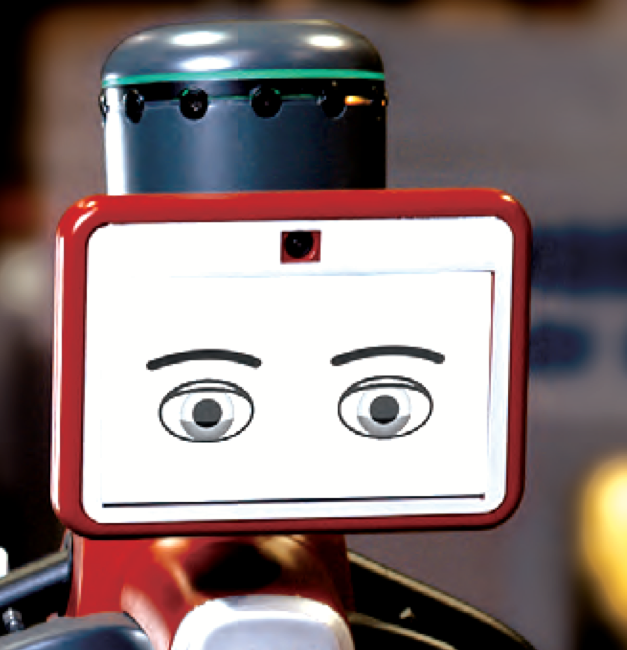
Robohub.org
AJung Moon on “Do robots need heads?”
 Are you curious about what your future robotic assistants will look like?
Are you curious about what your future robotic assistants will look like?
My bet is that by the time you buy your very first robotic butler, it will have a friendly head on it that moves. In fact, it would be a good idea to make robots with heads if they are intended to share spaces and objects with people. That’s because the head is a really expressive part of our body we naturally use (a lot) to convey essential information to each other. Robots will need to do the same if they are going to hang out with us soft-tissued human beings at our homes and offices.
For example, when people are attending to something, they tend to be looking at the thing they are attending to. People also look at the direction they are headed when they walk, and make eye contact when they talk. People nod with their head when they want to show agreement about what is being said. Without these nonverbal cues from the head interacting with each other would be much more difficult, because we wouldn’t know what each other are doing.
Rodney Brooks, a pioneer in robotics and now Chairman and CTO of Rethink Robotics, had this in mind when he built Baxter. Although Baxter’s arms are as bulky-looking as its traditional industrial robotics predecessors, one of the innovative components of it is the fact that it features a moving head that makes its interaction with not-so-trained users very intuitive
http://www.youtube.com/watch?v=4OIxWMTrGl8
If robots are to do meaningful things around us in a safe manner, it’s essential that we know what the robot is attending to, where it is headed, and what it is about to do – a lot of which a robot head can help with. That way, we won’t have to be a roboticist to know when it is safe to be around a robot holding on to a giant knife to make you cucumber salad. <optionally embed cucumber slicing robot
http://www.youtube.com/watch?v=ZvDXrZX-SCA
tags: Robotics by Invitation




